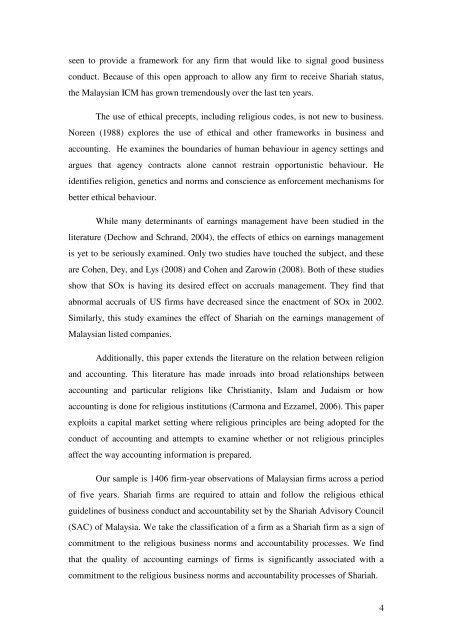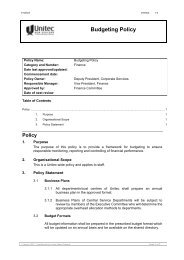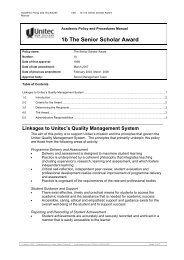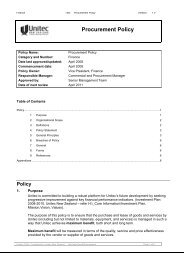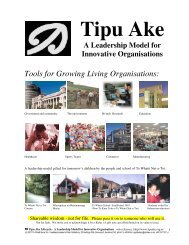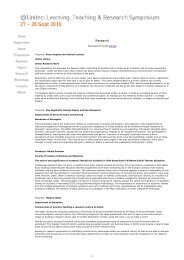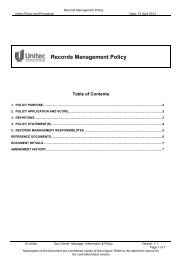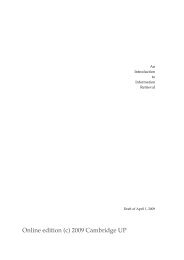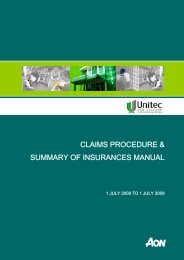RELIGION AND EARNINGS MANAGEMENT - Some ... - Unitec
RELIGION AND EARNINGS MANAGEMENT - Some ... - Unitec
RELIGION AND EARNINGS MANAGEMENT - Some ... - Unitec
Create successful ePaper yourself
Turn your PDF publications into a flip-book with our unique Google optimized e-Paper software.
seen to provide a framework for any firm that would like to signal good business<br />
conduct. Because of this open approach to allow any firm to receive Shariah status,<br />
the Malaysian ICM has grown tremendously over the last ten years.<br />
The use of ethical precepts, including religious codes, is not new to business.<br />
Noreen (1988) explores the use of ethical and other frameworks in business and<br />
accounting. He examines the boundaries of human behaviour in agency settings and<br />
argues that agency contracts alone cannot restrain opportunistic behaviour. He<br />
identifies religion, genetics and norms and conscience as enforcement mechanisms for<br />
better ethical behaviour.<br />
While many determinants of earnings management have been studied in the<br />
literature (Dechow and Schrand, 2004), the effects of ethics on earnings management<br />
is yet to be seriously examined. Only two studies have touched the subject, and these<br />
are Cohen, Dey, and Lys (2008) and Cohen and Zarowin (2008). Both of these studies<br />
show that SOx is having its desired effect on accruals management. They find that<br />
abnormal accruals of US firms have decreased since the enactment of SOx in 2002.<br />
Similarly, this study examines the effect of Shariah on the earnings management of<br />
Malaysian listed companies.<br />
Additionally, this paper extends the literature on the relation between religion<br />
and accounting. This literature has made inroads into broad relationships between<br />
accounting and particular religions like Christianity, Islam and Judaism or how<br />
accounting is done for religious institutions (Carmona and Ezzamel, 2006). This paper<br />
exploits a capital market setting where religious principles are being adopted for the<br />
conduct of accounting and attempts to examine whether or not religious principles<br />
affect the way accounting information is prepared.<br />
Our sample is 1406 firm-year observations of Malaysian firms across a period<br />
of five years. Shariah firms are required to attain and follow the religious ethical<br />
guidelines of business conduct and accountability set by the Shariah Advisory Council<br />
(SAC) of Malaysia. We take the classification of a firm as a Shariah firm as a sign of<br />
commitment to the religious business norms and accountability processes. We find<br />
that the quality of accounting earnings of firms is significantly associated with a<br />
commitment to the religious business norms and accountability processes of Shariah.<br />
4


